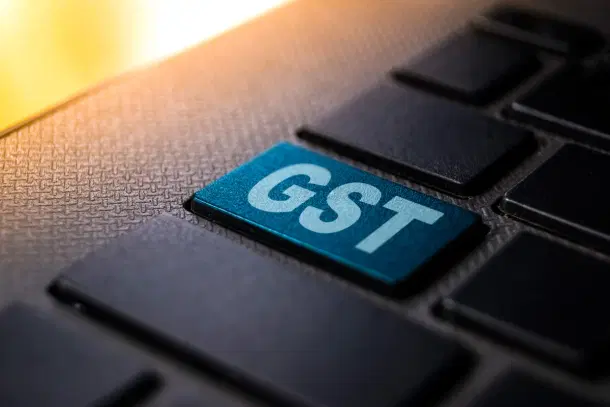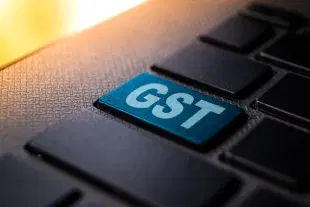News Brief
GST Council Eyes Sweeping Compliance Reforms As Experts Push For Electricity, Natural Gas Inclusion In Tax Net: Report
Swarajya Staff
Oct 09, 2025, 11:40 AM | Updated 11:40 AM IST
Save & read from anywhere!
Bookmark stories for easy access on any device or the Swarajya app.


The GST Council's next meeting is set to prioritise comprehensive compliance reforms, with industry experts highlighting critical areas including bringing electricity and natural gas under the tax regime, expanding e-invoicing to business-to-consumer transactions, and establishing a dedicated arbitration tribunal for faster dispute resolution, The Hindu Businessline reported.
These proposed changes come as part of the government's broader push towards GST 2.0, building on the simplified tax structure introduced in September with two main slabs of 5 per cent and 18 per cent, removing the earlier 12 per cent and 28 per cent rates.
The inclusion of electricity and natural gas under GST has emerged as a pressing concern for industry stakeholders.
Section 9 of the CGST Act states that GST on products such as crude oil, diesel, motor spirit, natural gas, and aviation turbine fuel will apply from a date to be specified by the government, but these sectors remain outside the GST framework.
Finance Ministry has reportedly been working on the proposal with major states, including Maharashtra and Gujarat, having agreed on the proposal, while the Oil Ministry has provided additional data on the impact.
The cascading effect of taxes on these essential inputs continues to burden manufacturers and service providers, making this reform crucial for cost reduction across industries.
Digital transformation of compliance processes stands at the heart of the anticipated reforms.
The government, through the 54th GST Council Meeting, has begun discussions to extend e-invoicing mandates to cover B2C transactions, currently applicable only to B2B transactions for businesses with turnovers above Rs 5 crore, with the extension expected to streamline tax collections, curb tax evasion, and foster digital record-keeping.
The pilot B2C e-invoicing system introduced at the 54th meeting will be run on a voluntary basis in select sectors and States before launching its full-scale rollout, marking a significant shift towards comprehensive digital tax management.
The establishment of a GST Arbitration Tribunal has gained momentum following the formal launch of the Goods and Services Tax Appellate Tribunal (GSTAT) on 24 September 2025 by Union Finance Minister Nirmala Sitharaman in New Delhi, expected to play an important role in resolving GST disputes fairly, quickly, and consistently across the country. The tribunal follows comprehensive guidelines laid down in the Goods and Services Tax Appellate Tribunal (Procedure) Rules, 2025, issued on April 24, 2025, ensuring streamlined dispute resolution through standardized and tech-enabled procedures.
Broader economic reforms provide the backdrop for these GST changes.
The Reserve Bank of India has been implementing the RBI (Digital Lending) Directions, 2025, issued on 8 May 2025, which consolidate and replace earlier frameworks, introducing key clarifications and significant changes to strengthen India's digital lending framework.
These parallel reforms in banking and taxation reflect the government's coordinated approach to economic modernisation.





